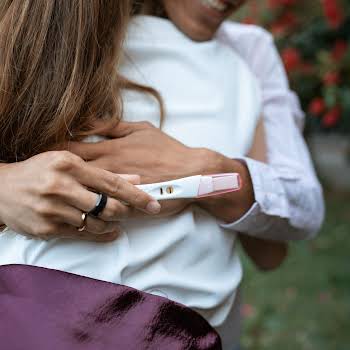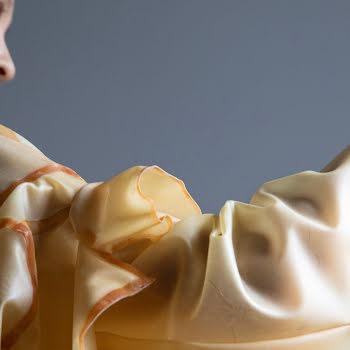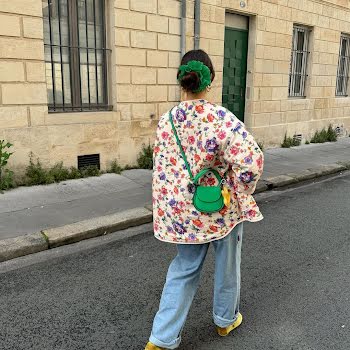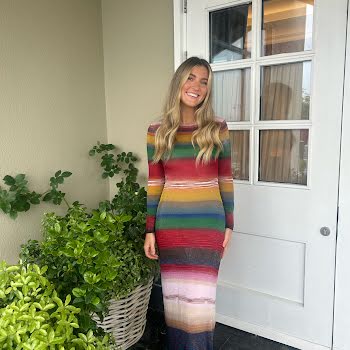9 skincare ingredients to avoid during pregnancy, according to a dermatologist
By Grace McGettigan
23rd Sep 2020
23rd Sep 2020
Some skincare ingredients are unsuitable to use during pregnancy. Here Dr Tiina Meder, a dermatologist and founder of Meder Beauty Science, reveals the nine ingredients to avoid until after the baby is born
Skincare has evolved a lot in recent years. More women are taking special care when choosing their products than ever before; with many of us making time to learn about the ingredients within these products.
Then, just when you’ve pinned down what skincare ingredients work best for you, pregnancy can throw a spanner into the works.
Some ingredients are unsuitable to use while carrying a child; put simply, some ingredients and/or treatments can penetrate into your bloodstream, having a systemic effect on the body; which may affect the embryo.
Related: Becoming a mother is tough –
it’s okay to be overwhelmed by it all
Dr Tiina Meder, dermatologist and founder of Meder Beauty Science, says that while pregnant women have to give up certain things, there are actually very few limitations when it comes to cosmetic skincare.
“Pregnancy is a very special time in a woman’s life,” she says. “You don’t need to panic and stop using your deodorant because it contains aluminium, or your day cream because of scary parabens. There is not much point to go all organic either. Sure, some things will have to wait – but not as many as you’d think”.
In fact, there are just nine ingredients/treatments to look out for, Dr Meder says. They are:
Systemic retinoids
“Systemic retinoids (particularly Roaccutane) used in acne treatments are strictly forbidden during pregnancy, so much so that dermatologists advise women not to plan a pregnancy for the whole duration of therapy,” says Dr Meder.
Fillers / Botox
“Injectables will have to wait too. Botulinum toxin (Botox), fillers, and bio-revitalisation are officially forbidden from being administered to pregnant women in all countries of the world,” she says.
Laser
“Machine treatments, whether high-intensity or energy-assisted methods, should be avoided. Laser resurfacing, RF liftings, and, of course, cryolipolysis, should also be avoided during pregnancy.”
Retinol
“Skincare products formulated with retinol derivatives are not recommended,” says Dr Meder. “There is no definitive proof of any negative effects yet, however, it has been suggested that retinol derivatives may pose a risk of harm (however minor) to the embryo.”
Whitening/brightening solutions
“Whitening and brightening solutions with hydroquinone are safe to use during pregnancy and won’t harm the foetus. However, skin can become more sensitive during pregnancy, increasing the risk of side effects and complications from these treatments.”
Salicylic acid
“Salicylic acid is also safe to use during pregnancy and won’t harm the foetus. However, like hydroquinone, salicylic acid is not recommended, for the same reason. Salicylic acid can be found in many skincare products, including body care, so be sure to read a product’s ingredients list before use.”
Glycolic acid
“The jury is still out on glycolic acid, with some dermatologists recommending it be avoided during pregnancy,” she says. “However, this doesn’t mean all AHAs need to be avoided. Citric and lactic acids, for example, are safe to use during pregnancy.”
Some essential oils
“Although natural, there are several essential oils that should be used with caution during pregnancy,” Dr Meder says. “The agents they contain have small molecular weight and high volatility, so they may affect the body as a whole.
“Many essential oils increase the skin’s sensitivity to UV, which isn’t great considering the risk of pigmentation is higher during pregnancy,” she explains.
Mint oils / extracts
“Camphor, peppermint extract, and mint oil are also not recommended during pregnancy, especially for those late in pregnancy or those with an increased risk of miscarriage.
“These ingredients are perfectly safe for use outside of pregnancy, however pregnant women should ensure skincare products are free of these ingredients before using them.”
If you are pregnant or plan to become pregnant, always consult your GP or dermatologist for advice before trying new skincare ingredients.
Photography by @beyonce.
Read more: Becoming a mother is tough – it’s okay to be overwhelmed by it all
Read more: Baby on board? 100 essential tips for first-time parents (from mums who’ve been there)
Read more: Postpartum incontinence: ‘The indignity of wetting myself every day was a lot to deal with’























